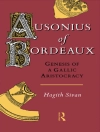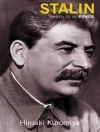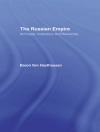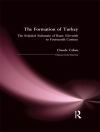In studies of a common European past, there is a significant lack of scholarship on the former Eastern Bloc countries. While understanding the importance of shifting the focus of European memory eastward, contributors to this volume avoid the trap of Eastern European exceptionalism, an assumption that this region’s experiences are too unique to render them comparable to the rest of Europe. They offer a reflection on memory from an Eastern European historical perspective, one that can be measured against, or applied to, historical experience in other parts of Europe. In this way, the authors situate studies on memory in Eastern Europe within the broader debate on European memory.
विषयसूची
List of Illustrations
Foreword
Jeffrey Olick
Acknowledgments
Introduction: Memory and Change in Eastern Europe: How Special?
Małgorzata Pakier and Joanna Wawrzyniak
PART I: MEMORY DIALOGUES AND MONOLOGUES
Chapter 1. The Transformative Power of Memory
Aleida Assmann
Chapter 2. Political Correctness and Memories Constructed for ‘Eastern Europe’
Andrzej Nowak
PART II: EUROPE AS A (UNIQUE) MEMORY FRAMEWORK?
Chapter 3. The (non-)Travelling Concept of Les Lieux de Mémoire: Central and Eastern European Perspectives
Maciej Górny and Kornelia Kończal
Chapter 4. Ain’t Nothing Special
Sławomir Kapralski
Chapter 5. Biographical and Collective Memory: Mutual Influences in Central and Eastern European Context
Kaja Kaźmierska
PART III: EASTERN EUROPEAN MEMORIES FACING HISTORICAL CHANGE AND CULTURAL TRANSFORMATIONS
Chapter 6. The Path of Bringing the Dark to Light: Memory of the Holocaust in Postcommunist Europe
Joanna Beata Michlic
Chapter 7. The Rise of an East European Community of Memory? On Lobbying for the Gulag Memory via Brussels
Lidia Zessin-Jurek
Chapter 8. Two Concepts of Victimhood: Property Restitution in the Czech Republic and Poland after 1989
Stanisław Tyszka
Chapter 9. Shared Memory Culture? Nationalizing the ‘Great Patriotic War’ in the Ukrainian-Russian Borderlands
Tatiana Zhurzhenko
Chapter 10. History, Politics and Memory (Ukraine 1990s – 2000s)
Georgiy Kasianov
Chapter 11. Walking Memory through City Space in Sevastopol, Crimea
Judy Brown
PART IV: FOCI OF MEMORIES IN EASTERN EUROPE
Chapter 12. World War II in the Memory of Contemporary Polish Society
Piotr Tadeusz Kwiatkowski
Chapter 13. Auschwitz and Katyń in Bondage of Politics: The Process of Shaping Memory in Communist Poland
Jacek Chrobaczyński and Piotr Trojański
Chapter 14. Germans in Eastern Europe as a Polish-German Lieu de Mémoire? On the Asymmetry of Memories
Matthias Weber
Chapter 15. Remembering Collectivization in Bulgaria
Iana Iancheva
Chapter 16. Uses and Misuses of Memory: Dealing with Communist Past in Postcommunist Bulgaria and Romania
Claudia-Florentina Dobre
Bibliography
Notes on Contributors
Index
लेखक के बारे में
Joanna Wawrzyniak is Head of the Social Memory Laboratory of the Insitute of Sociology, University of Warsaw. Her recent publications are Veterans, Victims, and Memory: The Politics of the Second World War in Communist Poland (2015) and The Enemy on Display: The Second World War in Eastern European Museums (co-authored with Zuzanna Bogumił et al., 2015).












